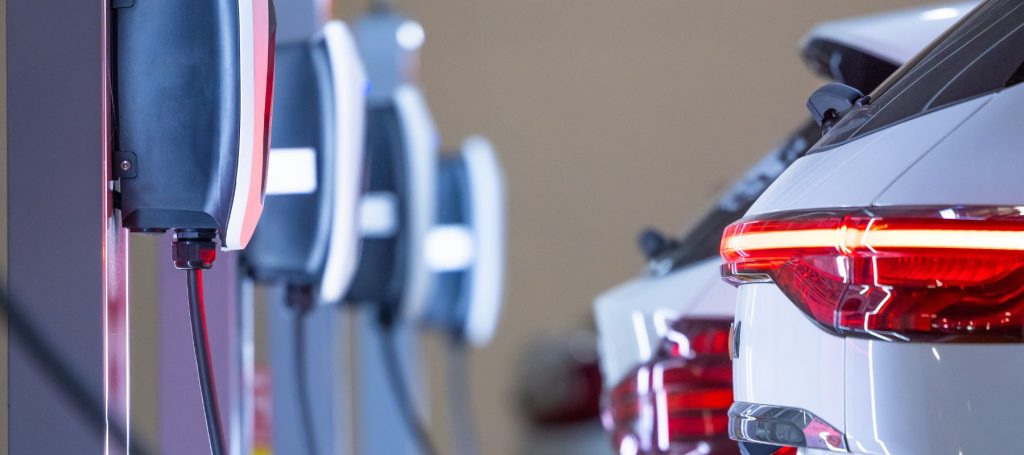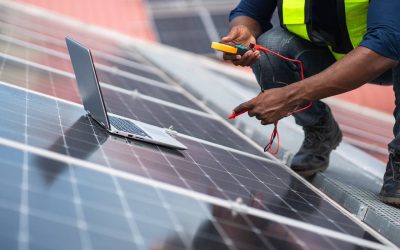EV charging and Solar Reduce Your Carbon Footprint
In recent years, more households and businesses in Scotland have begun looking for practical ways to lower their carbon emissions. Solar power and electric vehicles (EVs) are two of the most talked about solutions, but the real power lies in combining the two. With the right setup, solar photovoltaic (PV) panels can generate electricity to charge your EV at home or at work. This not only cuts down on fossil fuel use but can also significantly reduce your energy bills over time.
Solar Power at Home or Work
Solar PV systems work by converting daylight into electricity through roof-mounted panels. In Scotland, where we often have overcast skies, people are sometimes sceptical about how effective solar panels can be. But modern PV systems are highly efficient and work well even in lower light conditions. The Energy Saving Trust confirms that solar panels remain a worthwhile investment across the UK, including in areas like Glasgow.
For domestic settings, solar panels can supply power for lighting, appliances, heating systems, and now increasingly, EV chargers. In commercial environments, a larger solar setup can support vehicle fleets, on-site operations, and workplace charging infrastructure. By generating your own electricity, you’re using fewer units from the grid – and that electricity is clean, renewable and carbon-free.
Charging Your Electric Vehicle with Solar Energy
Electric vehicles already have the benefit of zero tailpipe emissions, but charging them using grid electricity can sometimes be counterproductive, especially if that electricity comes from fossil fuels. This is where solar power makes a real difference. When you use solar energy to charge your EV, the emissions associated with your daily driving drop dramatically. You are essentially running your car on sunlight.
Many EV owners in Scotland are now installing solar-compatible home charge points. Some of the latest chargers on the market can prioritise solar energy before pulling power from the grid. This allows homeowners to control when and how their vehicle charges, ensuring maximum use of the clean energy they generate.
Businesses with multiple vehicles or staff who drive electric cars can also benefit. A workplace solar PV system can feed into EV charge points during the day, helping to lower fleet fuel costs and reduce the organisation’s overall carbon footprint.
Battery Storage, Keeping Solar Energy for Later
One common concern with solar PV is that energy generation doesn’t always match usage. Most people charge their vehicles in the evening, but solar power peaks during daylight hours. This is where battery storage systems come in. They store excess electricity produced during the day so it can be used later – including for overnight vehicle charging.
With a home battery system, homeowners can store solar energy and decide when to use it. This can help avoid drawing expensive grid electricity during peak times. Some of the most popular systems, like the Tesla Powerwall, are already being installed across Scotland as part of an integrated solar and EV solution.
Financial Support and Government Backing
The Scottish Government has been encouraging the switch to low-carbon transport and renewable energy for years. Financial support has been available for both solar panel installations and EV charge point systems through various schemes, some of which are run in partnership with the Energy Saving Trust Scotland.
For commercial organisations, there is additional help via the Office for Zero Emission Vehicles (OZEV), which supports charge point infrastructure for business fleets and public use. These grants help reduce the upfront cost of installing low-emission technology and make it easier to invest in greener systems.
Carbon Impact in Everyday Life
Switching to solar-powered EV charging makes a noticeable difference to your household or business’s environmental impact. Transport accounts for a large share of UK carbon emissions, and while electric vehicles reduce tailpipe emissions, charging from the grid still involves a carbon cost. When solar PV is brought into the equation, the entire lifecycle of vehicle use becomes cleaner and more sustainable.
For homeowners, this might mean taking shorter or more frequent trips without guilt, knowing your vehicle is charged from your own solar power. For businesses, the impact is often larger – replacing traditional fleet vehicles with EVs charged on-site can lead to thousands of kilograms of CO₂ savings per year.
Practical Integration: How Jorro Helps
Installing solar panels and EV charge points together needs careful planning to make sure the system works efficiently. Jorro provides complete installation services across Glasgow and the Central Belt, helping homeowners and businesses design systems tailored to their energy use and long-term goals. Whether it’s a small domestic setup or a commercial-scale project, the focus is always on making renewable energy practical and cost-effective.
We assess your property or business site, recommend suitable solar panel sizes, battery storage options, and EV charge point models that align with your energy patterns. Jorro also helps you access available grants and funding to reduce your initial investment and improve your return over time.
Looking Ahead: Scotland’s Renewable Future
Scotland’s energy goals are ambitious. The nation aims to be net zero by 2045, with a strong focus on renewable electricity and clean transport. Combining solar power with electric vehicles supports this national effort while giving individuals and businesses more control over how they consume energy.
As the grid becomes increasingly powered by renewables and battery technology improves, more people will be able to rely on their own solar power. Paired with EVs, this shift can fundamentally change how we think about energy use and transport not as separate systems, but as a connected, carbon-conscious solution.







